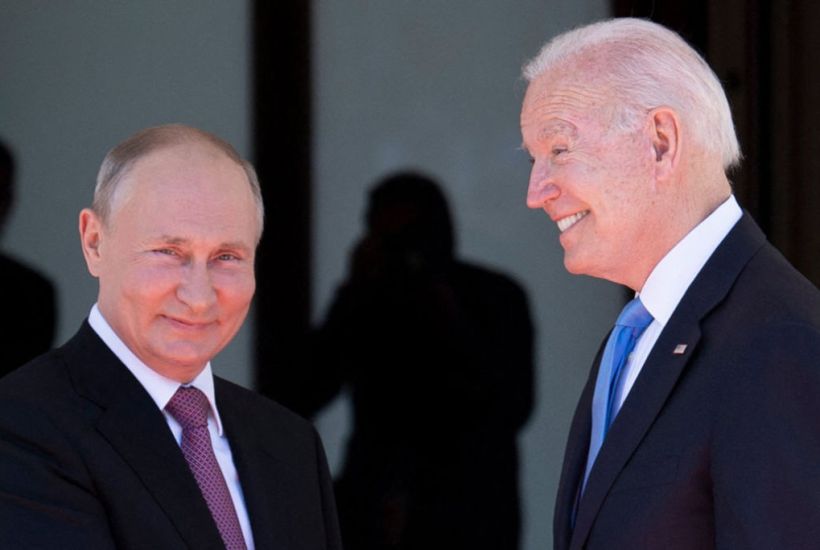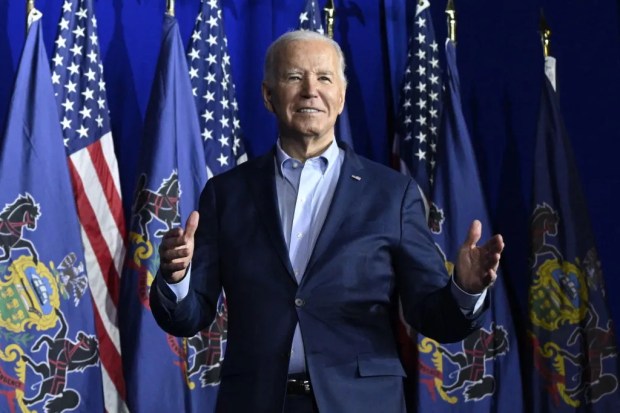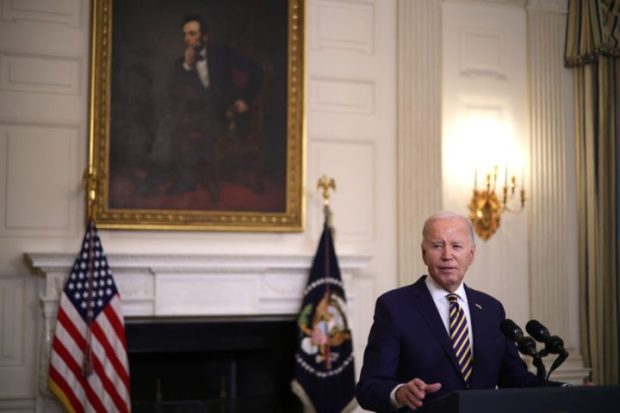The meeting between U.S. president Joe Biden and Russian president Vladimir Putin in Geneva started cordially enough. A quick handshake, toothy smiles for the cameras, and some standard words of diplomacy.
‘I would like to thank you for the initiative to meet today,’ a slouching Putin told an attentive Biden. ‘Still, U.S.-Russian relations have accumulated a lot of issues that require a meeting at the highest level, and I hope that our meeting will be productive.’
Putin’s words were something of an understatement. U.S.-Russia relations are scraping the bottom of the barrel and may very well be at their lowest point since the early 1980s, when Washington and Moscow were turning Europe into a parking lot for intermediate-range missiles.
While no subject was off-limits today, 99 per cent of the issues and grievances Biden and Putin brought with them (cyberattacks, computer hacks, sanctions, the mobilisation of troops near Ukraine’s border, the squashing of anti-Kremlin dissent on Russian soil) were left unresolved.
This was anything but surprising. Previewing the meeting, U.S. and Russian officials were equally subdued about what could be achieved in Geneva. Indeed, the only point of agreement between the U.S. and Russian delegations was that the overall trajectory of the relationship was bad and could potentially get worse.
This is the reason why Biden and Putin – career men as Putin likes to say – got together in the first place. The objective of the hours-long discussion wasn’t about resolving disputes, but rather ensuring complaints were aired clearly and minimal guardrails were established to prevent a deeper rupture.
To some lawmakers in Washington, D.C., this was hardly sufficient for a presidential-level visit; why give Putin the international stardom he so lavishly craves, they asked? The answer, of course, is that diplomacy isn’t a concession; it’s a critical part of the job.
We shouldn’t be under any illusions that U.S.-Russia relations or West-Russia relations more broadly will turn the page now that Biden and Putin have met. There are simply too many gulfs on too many issues, and neither side is willing to budge from their position.
As horrific as Putin’s behaviour can be (and there is no question that his behaviour has indeed been horrific, as the case of Alexei Navalny, who is stuck in a penal colony after surviving a Kremlin-ordered poisoning, attests), it’s not like the U.S. and its allies in Europe can ignore him.
The West doesn’t have a magic wand it can wave over Putin, where he suddenly becomes amenable to reorienting Russian foreign policy in a more constructive direction. Just as U.S. officials will insist on talking about the human rights situation in Russia, Russian officials will insist this is none of America’s business. Biden can’t pressure Putin into altering his worldview anymore than Putin can sweet-talk Biden into altering his.
The summit in Geneva, however, was still worthwhile as it offered a chance for the two leaders to expound upon disagreements and explore areas where the two powers could collaborate. Admittedly, those areas are few and far between; most certainly won’t include the democracy promotion agenda Biden and his senior national security advisers are so fond of bringing up.
Recouping a normal and functional diplomatic relationship is one of those areas of agreement, with Putin announcing the return of the U.S. and Russian ambassadors to their posts in the not-so-distant future.
But this is small fry when considering the wider issues at stake. The modernisation of the U.S. and Russian nuclear arsenals in recent years – and the fact that so many other agreements in the strategic stability realm have died over the last two years – makes for a worrying situation that could easily deteriorate rapidly. For two countries that possess nearly 90 per cent of the world’s nuclear weapons inventory, this situation is simply not sustainable.
Addressing the media afterwards, Putin said there was ‘no hostility’ exchanged between Biden and himself. ‘On the contrary our meeting took place in a constructive spirit… both sides expressed their intention to understand each other and seek common ground,’ he said. ‘The talks were quite constructive.’
Rosy words, perhaps. But at least it’s a start.
Got something to add? Join the discussion and comment below.
Get 10 issues for just $10
Subscribe to The Spectator Australia today for the next 10 magazine issues, plus full online access, for just $10.




















Comments
Don't miss out
Join the conversation with other Spectator Australia readers. Subscribe to leave a comment.
SUBSCRIBEAlready a subscriber? Log in